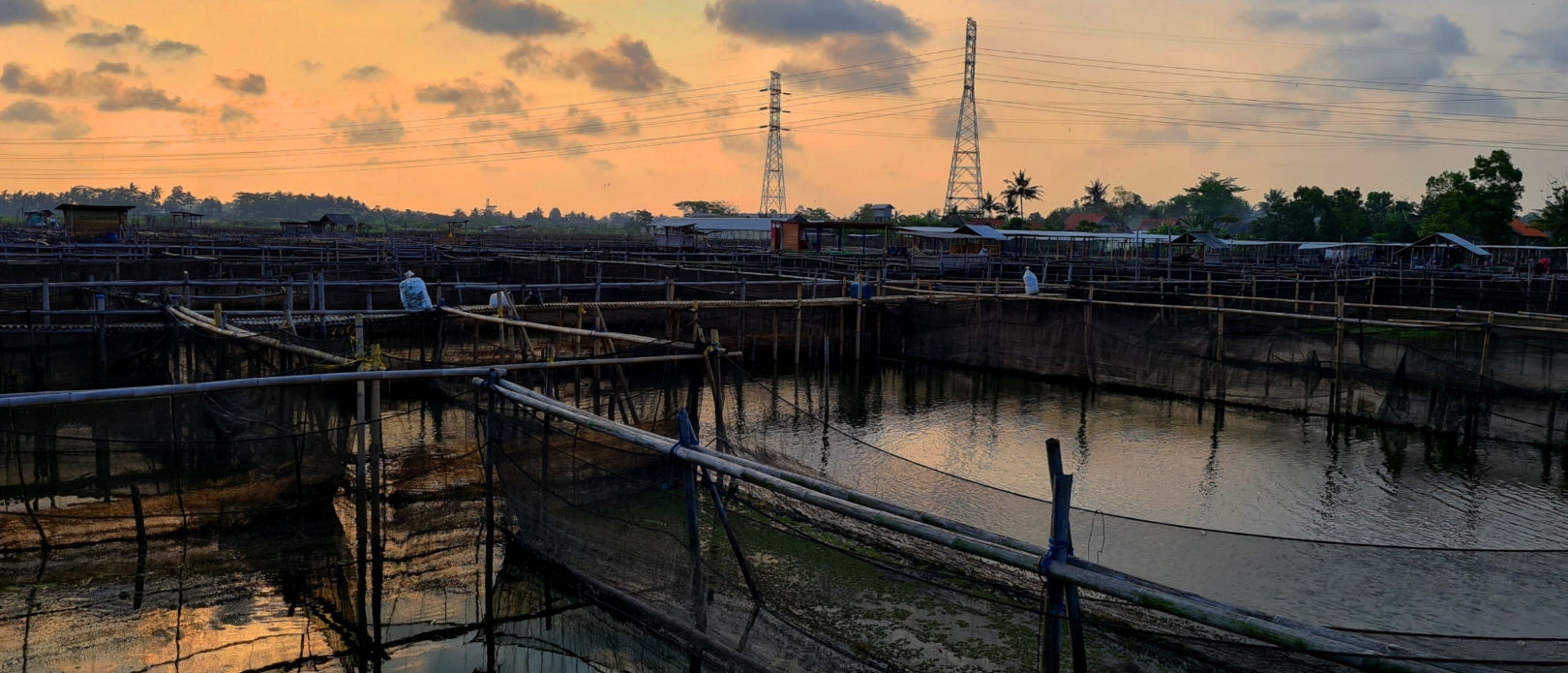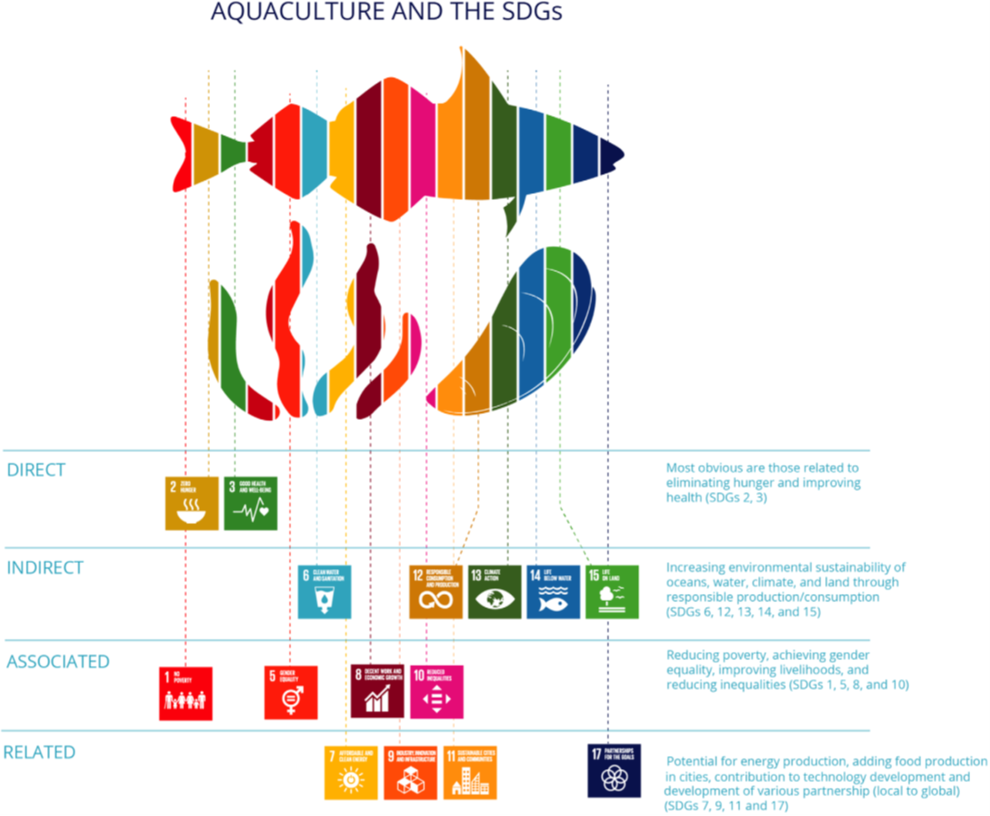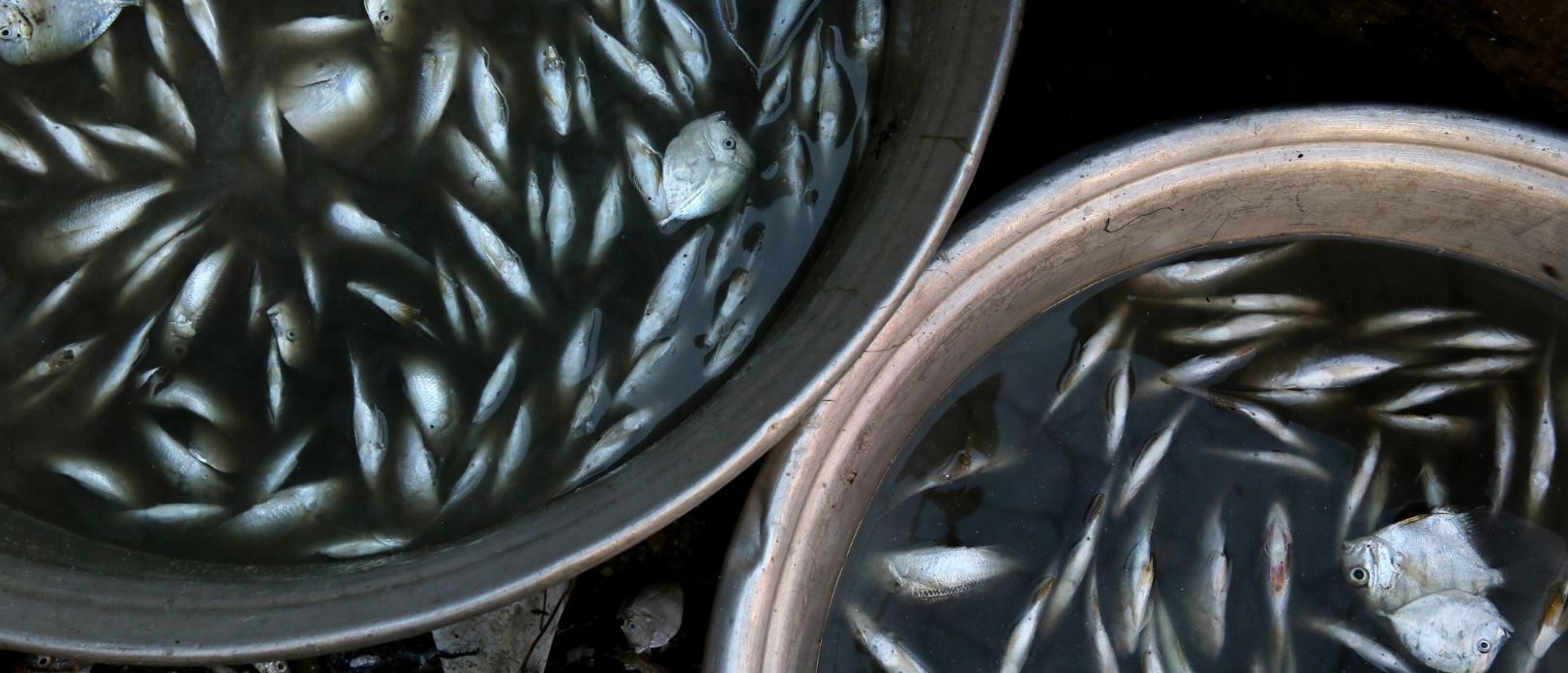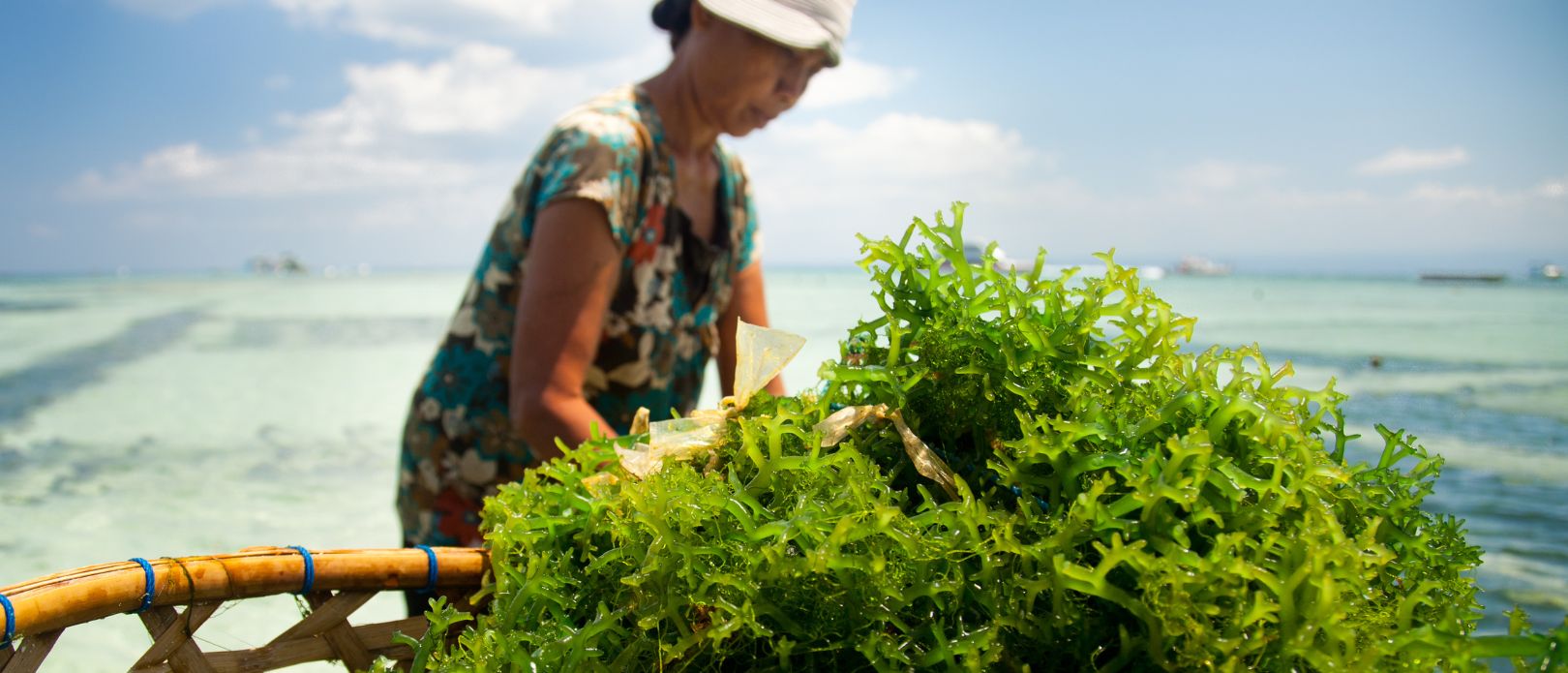Aquaculture and SDGs
Harnessing aquaculture for SDGs: A pathway to human and planetary health

Aquaculture can offer pathways to achieving many SDGs. Photo: Bustomi via Canva.
Aquaculture contributes substantially to the Sustainable Development Goals, SDGs, but its future potential needs careful consideration of trade-offs, a new study shows
- A new study presents a comprehensive analysis of the role that responsible aquaculture can play in achieving global sustainability targets
- Aquaculture's contribution to achieving SDGs depends to a large extent on what species, systems and contexts it is used in
- Robust governance mechanisms and integrated approaches are needed to ensure the sustainable development of aquaculture
In a new study published in the Journal of the World Aquaculture Society, researchers shed light on the significant potential of aquaculture in advancing the Sustainable Development Goals (SDGs) for the betterment of both human well-being and the health of our planet.
In the article, they present a comprehensive analysis of the role that responsible aquaculture can play in achieving global sustainability targets.
“By embracing responsible practices, integrated approaches, and inclusive governance, aquaculture can emerge as a vital solution for feeding a growing population, protecting marine ecosystems, and promoting sustainable development worldwide,” says centre researcher Max Troell, lead author of the paper.
The research, conducted by a team of international experts, including centre researcher Max Troell, highlights the capacity of aquaculture to address various interrelated SDGs.
Contributions to SDGs
Aquaculture's contribution to achieving the SDGs depends to a large extent on what species/systems and their contexts, that is, being related to value chains, product markets (export/domestic), national economy, socioeconomic structures/fabric and governance. This means that aquaculture's diverse functions and generation of values at multiple spatiotemporal scales need to be unpacked to understand potential contributions to the SDGs.
One of the key findings of the study is the crucial role of aquaculture in addressing SDG 2: Zero Hunger and SDG 3: Good Health & Wellbeing. With global food demand projected to increase in the coming decades, the sustainable production of fish and seafood can play a vital role in providing nutritious and accessible protein to a growing population.
 Zoom image
Zoom imageSimplified overview of aquaculture's main contributions to the Sustainable Development Goals.
The research emphasizes the importance of integrating aquaculture into diverse food systems, considering the local context and ecological carrying capacity to ensure sustainable production practices.
Additionally, aquaculture offers pathways to achieving several SDGs more related to social challenges, such as reducing poverty, achieving gender equality, improving livelihoods and reducing inequalities. Aquaculture can provide income and employment opportunities, particularly in coastal communities and developing countries. When managed inclusively and equitably, aquaculture has the potential to enhance livelihoods and alleviate poverty, while fostering resilient and thriving coastal communities.
Stuck in policy silos
According to the study, the potential of aquaculture is currently hampered by several governance obstacles. One of them is the different silos within which aquaculture is placed. Some countries allocate it under agricultural policies, others under natural resources or fisheries.
“The full potential of aquaculture to achieve targets of the SDGs may only be realized if brought into broader food and natural resource systems decision-making,” the authors write in the paper.
They stress the need for robust governance mechanisms and integrated approaches to ensure the sustainable development of aquaculture.
The journal article also features a selection of case studies that illustrate:
- the diversity of the aquaculture sector and its role for the SDGs,
- methodologies to identify aquaculture’s contribution to the SDGs,
- trade-offs with regard to farming systems and SDGs.
Troell, M., Costa-Pierce, B., Stead, S., Cottrell, R.S., Brugere, C., Farmery, A.K., Little, D.C., Strand, Å., Pullin, R., Soto, D., Beveridge, M., Salie, K., Dresdner, J., Moraes-Valenti, P., Blanchard, J., James, P., Yossa, R., Allison, E., Devaney, C. & Barg, U. 2023. Perspectives on aquaculture's contribution to the Sustainable Development Goals for improved human and planetary health. Journal of the World Aquaculture Society, 54(2), 251-342.
DOI: 10.1111/jwas.12946








